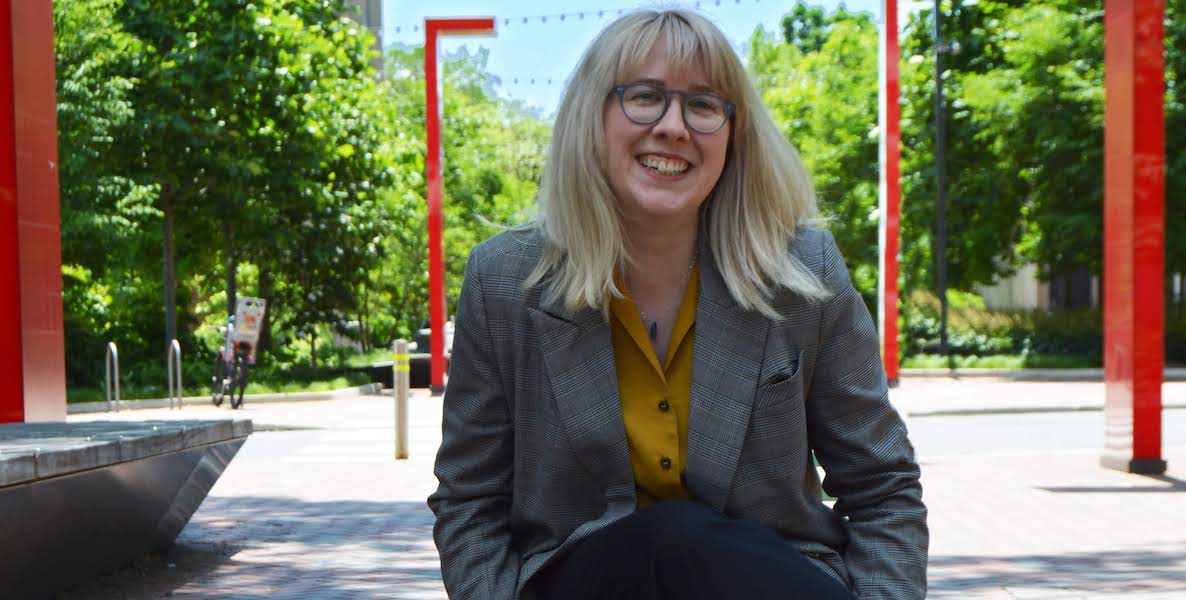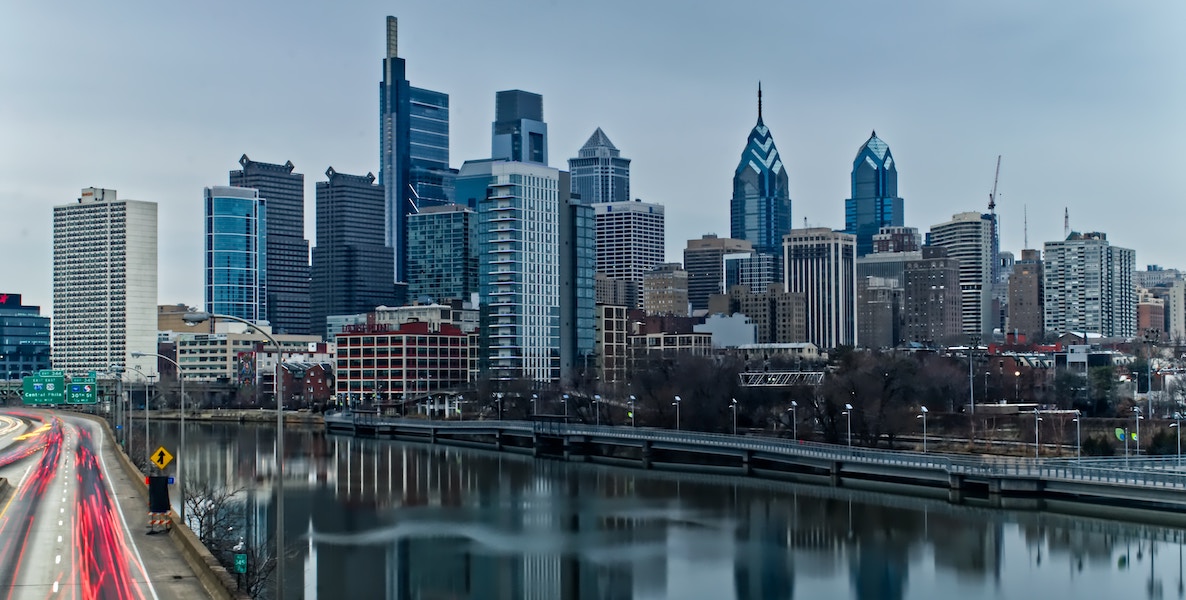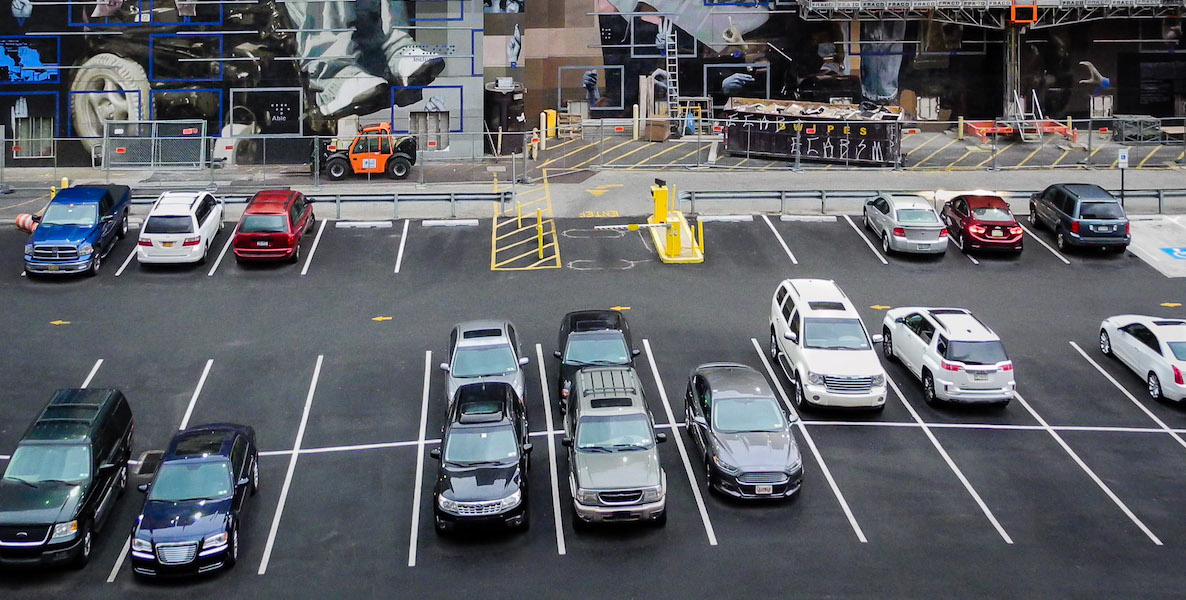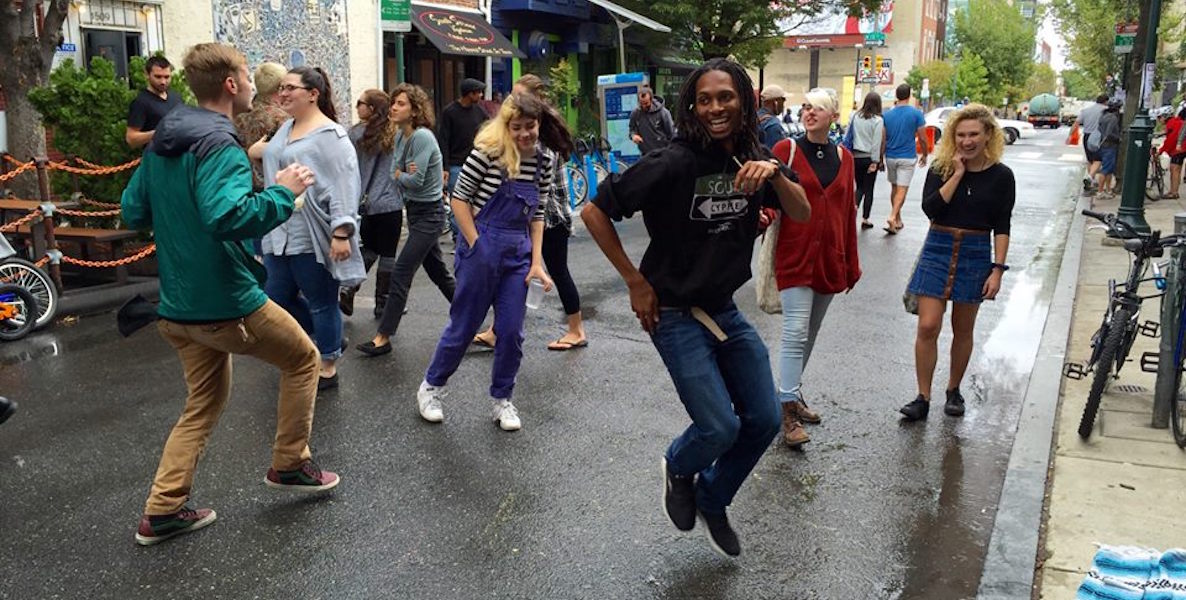Given her professional expertise in urban studies, it’s tempting to assume that Katrina Johnston-Zimmerman grew up in bustling metropoles. But the adjunct professor at Drexel University’s Lindy Institute for Urban Innovation was actually raised exclusively in rural areas, from far-out Montgomery County to farms in Wisconsin and Connecticut.
“I’m one of five kids, and my mom was a foster mom as well, so we always had lots of kids—and animals—in the house,” Johnston-Zimmerman explains of her mother’s penchant for space.
It wasn’t until Johnston-Zimmerman became an undergrad in Phoenix, at Arizona State University, that she experienced city living. “It was kind of scary in some ways,” she acknowledges. “But Phoenix was where I realized that we built cities as decentralized areas that we really could’ve planned a lot better.”
That budding interest in cities, along with a lifelong interest in animals and behavior—and a fixation with National Geographic Magazine, Discovery Channel, Jane Goodall and Jane Jacobs—ultimately led Johnston-Zimmerman to pursue a masters in urban studies at Portland State University, where she carved out a niche studying public spaces and “spatial ethnography,” the concept of really understanding how people use spaces.
Here, she talks about what Philly’s doing right, her favorite cities to visit, and the excitement behind a recent distinction she earned from the BBC.
Jessica Press: Before we go further, can you explain the many hats you wear? You’re an urban anthropologist and your field of expertise is “spatial ethnography”—is the latter a phrase you’ve coined, or is it a field unto itself?
Katrina Johnston-Zimmerman: It’s sort of one of those amorphous things. There are people who call themselves urban sociologists or urban ethnographers; I decided to keep the anthropology in [my title] because I’ve also conducted, for instance, an archaeological dig. And thinking more about the way that we used to live in the past is just as important as looking at how people use, say, a plaza in the present. Anthropology is a broader, more overarching umbrella term for the study of human beings, rather than focusing in on just sociology or ethnography.
JP: Got it. Can you talk about the work you’ve done to bring women’s voices to the conversation about urban studies, and why—as in all fields—that is so important? ?
KJZ: We’ve only been modern homo sapiens for about 250,000 years, and we’ve been in cities for about 10,000 years. And we’ve only been in “modern” cities, which is the post-auto era, for roughly 100 years. So if you think about the amount of time that we’ve taken to study and practice and iterate and assess, that entire time, up until incredibly recently—more or less one generation’s worth of a lifespan—it’s been entirely dominated by men.
So everybody is an urbanist, everybody is able to impact their environment, and everybody should have the ability to make their city a better place for themselves and their neighbors.
And that could say a couple of different things about the environment. It could mean that, implicitly, male-dominated cities have created cities that work well for themselves. But if your experience is limited [to that of being a male], you don’t have the breadth of diversity, which contributes to a better environment for everyone. So at the core of it, it’s about gender representation, but in reality it’s about representation of people who haven’t had a chance to have control of it, literally, up until now. That could include women, children, the elderly, people in wheelchairs or with mobility devices. It could include people with other sorts of disabilities with regards to vision and hearing, and so forth.
JP: When you think of Philly now, what grade would you give it in its current state, and what grade would you give it for its potential, in terms of how accessible and thoughtfully designed it is and can be?
KJZ: I know Philly hates being compared to New York, but when you think about New York City, where I lived for several years after getting my masters because that’s where the jobs were, its livability is quite low, because the prices are incredibly high, the commutes are stressful, everything is more or less unreliable and everything really is kind of breaking down.
By contrast, in Philly, which I’d started visiting more often when I was in New York, you could live comfortably at a lower wage, depending on the rest of your socioeconomic status and circumstances. I recognize that I’m a privileged individual with a masters degree. But compared to New York, you could really pay comparatively little and have a comparatively high quality of life in this city. So I moved to Philly because I saw its potential. I could see that, at this point in time, it was going to be popular. It was going to become that next middle city that everyone probably wanted to move to, so long as jobs were here, because places like New York and San Francisco and D.C. and Boston you can be easily priced out of.
So my question for Philadelphia was actually not so much is it good or bad, in that ranking or in that thought process, but more about what choices will it make as a city? And which direction will it go? Because it has the potential, by looking to other cities as an example, to make the right decisions and move in a way that retains livability and improves quality of life for the individuals who need it. I hold firm that Philadelphia has the potential to be the best biking city in the country, it can be the best public space city in the country, it can be the best in whatever the rankings are; it really does have all that potential because of its good bones, because of its already-existent public transportation and parks systems and so on and so forth. And because of the people I know who are in charge at the city level as well as on the ground, advocating for improvement.
JP: Well, along those lines, how can the average citizen in Philly, who’s not necessarily involved in planning or politics, improve our city’s livability?
KJZ: So here’s what’s interesting about Philadelphia too, and again this was one of the things that attracted me here and gives me this hope for the future: Philadelphians already do this a lot. It’s sort of built into the culture to impact your own personal urban environment in this city, I think even more than other cities.
Because a city is an environment that is manufactured—it is something that we make for ourselves, but, more important, for each other. And that needs to be at the core of everything that we do from city policy to putting a planter outside.
For instance, you walk down the street and you can see people put out planters on the sidewalk near their houses or at their businesses. That’s not necessarily something you see everywhere. And those planters really do such an incredible job, just simply on their own, of beautifying the environment. Now someone could say they’re blocking the sidewalk or somebody could come along and smash one and that person could retreat into their house and say Ok I’m never going to put something outside again for fear of it being damaged. But it doesn’t seem like that’s the case: It seems like people still do this. And it’s the same with stoop culture.
Being in public space is something that we have as a part of the culture already. And that kind of guerrilla occupation of the public realm is something that could even be extended to parking, for instance: I mean, I don’t know any other city where they really park in the median to such an extent as this city; we feel like we already have this odd sense of ownership of the city space between buildings in some way. And that should be extended. That should be sort of approved by the top-down, city systems themselves should say, Yes, we encourage you to put out a bench, put out a planter, put out a little free library. Improve your street as you see it. And I would like to see the city have some sort of system of suggestions for ways that the city could assist in the citizen-led improvement of the public realm. Which is also one of the subjects of a report that I put out in my somewhat new position at the Lindy Institute.
JP: What are some of your other favorite cities?
KJZ: I have two favorite cities, both of which are in Europe, which I know is a stereotypical thing to say. But I love Stockholm in Sweden, where I go every year to do guest lecturing for the Royal Institute for Technology. I love going back there in part because it’s a very metropolitan city for that region, which is still very small by comparison. But I think it’s really the beauty of the landscape that integrates into the city, the archipelago, and then of course the really excellent transit system and walkability. Also, I really love the pastries. The other city is Dublin. I just love a good kind of messier urban environment. No offense to the Irish of course, but the Swedish are a little bit cleaner and more rule-abiding. I love the passion of Ireland, I really love the country. And, full disclosure, I am from both of those places originally.
JP: So it’s in your blood. What cities are next on your list to visit?
KJZ: The next city that I need to go to is Barcelona, and I will say that is because of some of the most incredible improvements that are taking place to the streets, thanks to the first female mayor, Ada Colau. Her “superblock” program is closing down interior streets and they’ve turned them into playgrounds and parks and places where you just walk and bike through them. And I think this is something that so many cities could replicate. A city like Philadelphia, with a grid system, is perfect for this and already has some streets like that, those little happy carriageways where you can turn them into a block party. That to me is the next level of really best-practice urban design. And I just love that she’s doing it with equity at the core of all that she does, with the right to the city as her main concept for making those improvements.
JP: You were recently named to the BBC 100 Women 2019 list, a roundup of women around the world who are making a difference. What has that experience been like?
KJZ: I was floored; it was all just a really huge honor. When I started calling myself an urban anthropologist, I did so at great risk because I thought no one would understand what that was. But I decided to do it regardless, because I thought that this was something we needed to advocate for. As an applied anthropologist, I’m constantly trying to ensure that the research, the application, the knowledge, the commentary, is all out in the open, is all accessible to people. So it’s not only silo-ed in academic language but it is something that is really trying to benefit the people of an urban environment.
Honestly for me, half the battle is just the knowledge; it’s understanding that cities are difficult environments for human beings but that we have ways to tackle those challenges: We have a lot of research and understanding from past urban environments or contemporary research that tells us what we can do and what we should be doing to make it better for all of us. Because a city is an environment that is manufactured—it is something that we make for ourselves, but, more important, for each other. And that needs to be at the core of everything that we do from city policy to putting a planter outside.
JP: That’s a really empowering way of simplifying things.
KJZ: Well, we all have a part to play in that because we’re all human beings in the same environment, and we’re all in this together. So everybody is an urbanist, everybody is able to impact their environment, and everybody should have the ability to make their city a better place for themselves and their neighbors.
This interview has been edited and condensed.
Related articles
- New apartment project in Kensington will give tenants a discount if they volunteer
- A long-running City Council parking saga finally comes to an end—a win for the city






